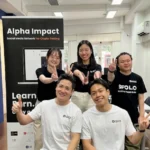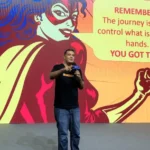In today’s fast-evolving job market, entrepreneurs and businesses face the challenge of preparing youth for the demands of the Fourth Industrial Revolution. Traditional education often falls short, focusing mainly on grades and theoretical knowledge rather than practical skills that empower young people to thrive in a dynamic workforce. Lee See Ting, the founder of Kidzstarter,...
RELATED ARTICLES
© NewInAsia.com 2025








